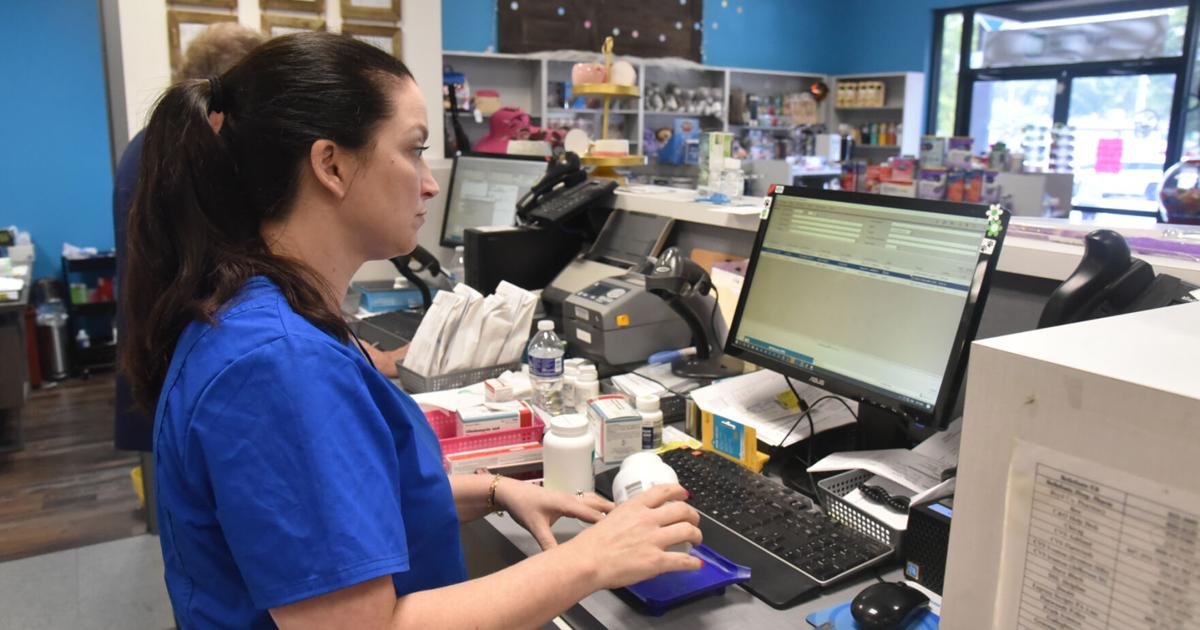[ad_1]
ASHLAND If you’ve been missing doses of medication prescribed by your physician, you are not alone.
Nationwide medication shortages are being reported and pharmacies in the Ashland area are no different.
Amanda Gillum, owner of Gillum Drug, said her store is having a difficult time getting generic ADHD medications and diabetic injections. While brand names are available, they often aren’t covered by insurance plans.
Andrea Dyer-Steele, pharmacist in charge at Ashland Family Health Center Pharmacy, said she also is seeing challenges getting certain antibiotics, like the liquid versions of Amoxicillin and Augmentin.
Clayton Wells of Clays Pharmacy in Catlettsburg, Louisa and Inez, said it’s not uncommon for pharmacies to have difficulty getting a drug, and manufacturers aren’t often forthcoming about why production can’t match demand.
“For any drug shortage, we try to get it in, then, if we’re unable to find it, we’re happy to try to find it with another pharmacy that has it on their shelf,” Wells said. “Generally, we find we get results pretty quickly.”
There could be many reasons some drugs are difficult or impossible to get.
Gillum said one of the major drug manufacturers has filed for bankruptcy, which eliminates a major producer.
She said doctors are prescribing diabetic drugs, like Mounjaro, Ozempic and Victoza, to non-diabetics for weight loss, which increased demand while supply remains stagnant.
Dyer-Steele said she sees problems get the injectable weight-loss drug Wegovy and the bronchodilator Albuterol sulfate, which is used in nebulizers.
“I feel like it’s a lot of things — supply chain issues, recall and there’s always some kind of manufacturer delay,” Dyer-Steele said. “There’s always some kind of drug issue, but there have been more in the last few months. I don’t know if COVID had anything to do with it. … There doesn’t seem to be a rhyme or reason.”
A recent Food and Drug Administration media release said manufacturing quality issues are the major reason for drug shortages, but also inability of manufacturers to obtain raw materials and discontinuations are to blame.
At McMeans Pharmacy, John McMeans agrees there are always drug shortages. His store is having the most trouble with obtaining ADHD medicines and breathing medications.
“People with COPD are having a heck of a time getting those products,” he said, noting adjustments in dosage can be made in some cases. He also said sometimes a liquid form of an antibiotic is more readily available than pill form, so an adult might have to forego the easier-to-tolerate pill.
While there are shortages of diabetic medicine, McMeans said he has been able to maintain a good stock for his regular patients.
“We stay in contact with doctors and checking with our wholesalers and just reorder and reorder,” he said. “It’s a lot of supply chain issues.”
Gillum said those on medications that are low in supply should work with their doctor and pharmacist to find another medication or solution to keeping their health on track until their medication becomes more available.
Dyer-Steele said she and her staff do their best to fill prescriptions with the best alternative they can find. Diabetics will come first in terms to having insulin prescriptions filled.
“In some cases, parents have to pay for (an antibiotic or ADHA treatment) that may not be covered,” she said, noting some insurance companies will cover a brand-name medication if no generic is available.
“In most cases, pharmacies are doing the best they can to keep up with the shortages,” she said. “We really want to try to help people the most we can. It gets tricky, and I really understand people’s frustrations.”
[ad_2]
Source link



